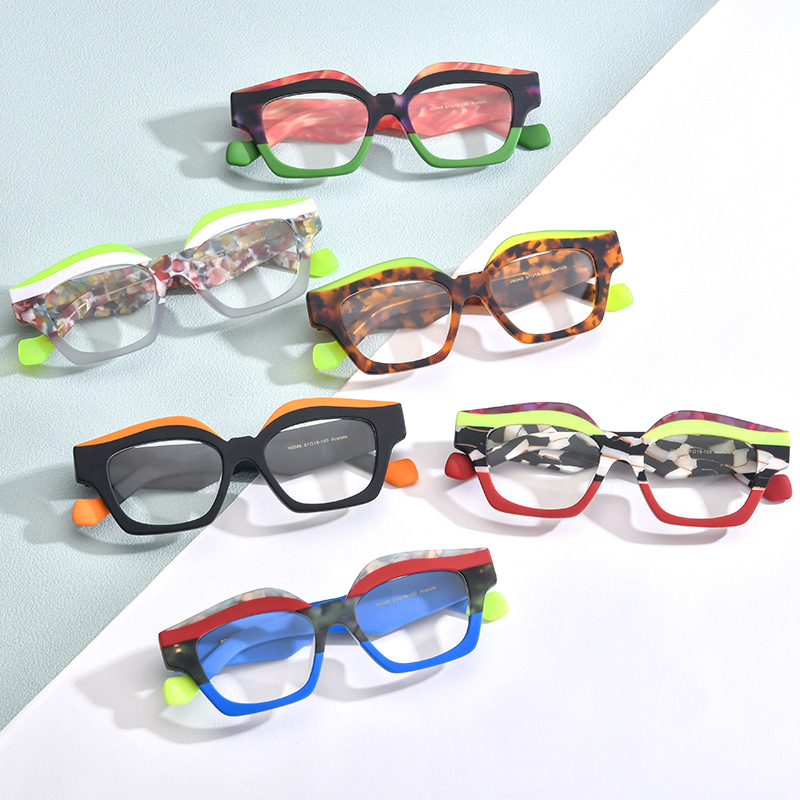In the discussion “Can nearsighted people not wear glasses?” On this topic, we first need to clarify the definition of myopia, the causes and the role of glasses in correcting vision, and then in-depth analysis in different situations, whether patients with myopia may choose not to wear glasses, and consider its potential advantages and disadvantages.
Nearsightedness, also known as short-sightedness, is a common eye disease characterized by blurred vision of distant objects and relatively clear vision of near objects. The causes of myopia are complex and varied, mainly including genetic factors, environmental factors (such as long-term close eye use, lack of light, etc.) and bad eye habits. With the popularization of electronic products and the increasing pressure of study and work in modern society, the incidence of myopia is increasing year by year, which has become an important problem affecting the visual health of adolescents and adults.
Glasses as one of the main tools to correct vision, through the principle of lens, so that the light on the retina to form a clear image, thereby improving the visual quality of myopia patients. For most patients with myopia, wearing the right glasses can effectively alleviate visual fatigue, prevent myopia from further deepening, and improve the quality of life. In addition, with the progress of science and technology, the types of glasses are increasingly rich, including frame glasses, contact lenses, orthokeratology glasses, etc., to meet the needs of different patients.
1. Mild myopia and does not affect daily life
For some patients with mild myopia (such as myopia degree below -1.00D), if the degree of myopia has little impact on daily life, and there are no obvious symptoms of visual fatigue, then in some specific occasions (such as resting at home, walking outdoors, etc.), it is also feasible not to wear glasses. However, it is important to note that this does not mean that you can go without glasses for a long time, because long-term blurred visual experience may cause further vision loss.
2. Specific career or activity needs
Certain occupations or activities may have special requirements for vision, such as swimming, diving, extreme sports, etc. In these cases, wearing traditional glasses may be inconvenient or even a safety hazard. Therefore, people with myopia can consider using contact lenses or undergoing myopia surgery to meet specific needs. Of course, the choice of which method depends on the actual situation of the individual and the doctor’s advice to decide.
3. Adolescent development period
For young people with myopia, because the eyeball is still in the development stage, the degree of myopia may change with age. At this stage, timely wearing of appropriate glasses or taking other corrective measures is crucial to controlling the development of myopia. Therefore, it is generally not recommended that teenagers do not wear glasses for a long time, so as not to accelerate the progression of myopia.
While going glasses-free may seem feasible in some contexts, in the long run, it poses a number of potential risks. First of all, blurred visual experience can easily lead to visual fatigue, which in turn worsens vision loss. Second, not wearing glasses may affect study and work efficiency, especially in situations that require prolonged concentration. In addition, for activities that require good vision, such as driving, not wearing glasses is a serious safety hazard.
“Can nearsighted people not wear glasses?” The answer to this question is not absolute. In certain situations, people with mild myopia may be able to go without glasses for a short time, but in the long term, in order to protect vision, improve quality of life and avoid potential risks, most people with myopia still need to wear appropriate glasses or other corrective tools as recommended by their doctor. At the same time, maintaining good eye habits, regular eye examination and timely myopia prevention and control measures are also important aspects of maintaining vision health.
Post time: Nov-22-2024
